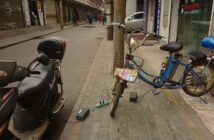Malawi receives a grant in the total amount of $3.2 million by SCIAF in efforts to help tackle the issue of climate change. SCIAF represents the Scottish Catholic International Aid Fund)
The grant will also increase the accessibility of food, water and energy. The staff will work with locals in southern Malawi to understand how climate challenges affect populations. They will also help create long-term changes for vulnerable groups including women and girls.
They fund will further help strategize ways of adapting to severe storms, droughts, floods to ensure that people have access to basic essentials like water and food.
A Culture of Farming:
Drastic and inconsistent weather makes it difficult for small scale farmers to know when to plant seeds. Floods and storms, including droughts are the cause of devastation. Crops are wiped out overnight, leaving populations hungry and forced to leave their homes.
Malawi is known as the Warm Heart of Africa, characterized by peace, stability and good will. The country is known as an exporter of tea and sugar to the developed world, but depends on rain-fed agriculture to sustain its economy. Most of the population are farmers – 85% of its over 17.5 million population consists of rural farmers.The fragility of its crop-lead economy makes many Malawians prone to basic human rights violations.
Heavy rains lead to bursts in riverbanks, creating flash floods that left a quarter of a million people homeless. Most of those individuals survived on subsistence farming, forcing the state to declare half of the country a disaster zone.
Human-Led Impacts to Malawi’s Climate Change:
Industrial gases and the uncontrolled cutting down of trees used as a substitute for electricity, are some of the greatest contributors to climate change in Malawi.
In particular, power outages are ongoing in the country. On average, civilians experience a minimum of three hours of power outages daily. Additionally, civilians can sometimes be without power for six hours at a time.
You Own the Land Campaign:
To stop the malpractice of tree cutting, local leaders embarked on a campaign that signs agreements with individuals who are entitled to a particular piece of land. This gives them the right to cut down trees and re-plant five to seven more trees. This is done in close monitoring with community leaders, chiefs, and village headmen.
We truly hope the best for Malawi.
Related:




